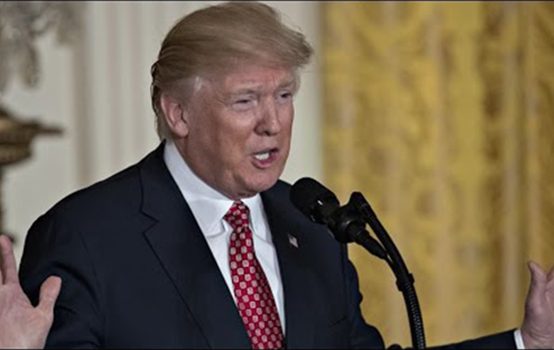The Pitfalls of Trump’s Predictable Bellicosity

Stephen Walt points out the pitfalls of the “madman” approach to foreign policy:
Moreover, unpredictable leaders also fail because they cannot attract or sustain reliable allied support. This problem isn’t surprising either; who would want to link their fates to an unpredictable, erratic, and hotheaded partner? It’s hardly surprising that most of the impulsive leaders discussed above ended up isolated and eventually became the targets of concerted and powerful opposition.
I agree with a lot of what Walt says, but I would frame the problem with Trump’s approach to foreign policy a little differently. His column reminded me of a recent article summarizing Trump’s recent threats and how they have backfired on him in different ways every time:
During his rise to power, President Trump proved he has a finely honed sense of what threats, intimidation and bluster can accomplish. In recent days, he has received reminders — including from South Korea, Iran and Venezuela — that geopolitics operates with a different set of rules than real estate or political campaigns.
As we have seen over the last seven months, many of the biggest quarrels between Trump and foreign leaders have been with leaders of allied or friendly states, and his tendency to make threats without any coordination or forethought has further strained relationships with many of these same states. At the same time, adversaries have reaped the benefits of Trump’s careless rhetoric. The effect of Trump’s bluster towards Iran at the Riyadh summit and afterwards has not been to make Iran more cooperative, but rather to sour relations and intensify their resistance to his demands while encouraging the Saudis in further blundering with its campaign against Qatar. Threats against Maduro and his allies haven’t made the government in Caracas more compliant with Washington’s preferences, but have managed to alarm almost every other government in the region about our intentions while giving the Venezuelan president a ready-made distraction. Likewise, Trump’s “fire and fury” talk regarding North Korea hasn’t elicited any improvement in North Korean behavior, but it has forced the new South Korean president to insist publicly that the U.S. will not act without his government’s consent.
On every front, Trump has either strengthened the position of the adversary he was trying to intimidate, or he has worried U.S. allies so much that our officials have had to spend more time reassuring them that the president doesn’t really mean what he says than they spent on addressing the relevant issues. That hasn’t happened because of Trump’s preference for unpredictability, but because he has been reliably bad at alliance management and consistently prone to issuing threats that scare our allies more than they worry our adversaries.
Comments